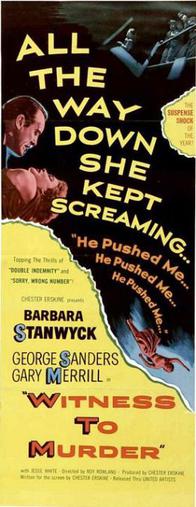Soldier Admits Providing Files to WikiLeaks

Alex Wong/Getty Images
Pfc. Bradley Manning pleaded guilty to 10 criminal counts in connection with the leak to WikiLeaks.
By CHARLIE SAVAGE
Published: February 28, 2013 414 Comments
FORT MEADE, Md. — Pfc. Bradley Manning on Thursday confessed in open court to providing vast archives of military and diplomatic files to the antisecrecy group WikiLeaks, saying that he released the information to help enlighten the public about “what happens and why it happens” and to “spark a debate about foreign policy.”
Multimedia
Connect With Us on Twitter
Follow @NYTNational for breaking news and headlines.
Jim Watson/Agence France-Presse — Getty Images
Pfc. Bradley Manning in April 2012. His guilty pleas Thursday exposed him to up to 20 years in prison.
Readers’ Comments
Share your thoughts.
Appearing before a military judge for more than an hour, Private Manning read a statement recounting how he joined the military, became an intelligence analyst in Iraq, decided that certain files should become known to the American public to prompt a wider debate about foreign policy, downloaded them from a secure computer network and then ultimately uploaded them to WikiLeaks.
“No one associated with WLO” — an abbreviation he used to refer to the WikiLeaks organization — “pressured me into sending any more information,” Private Manning said. “I take full responsibility.”
Before reading the statement, Private Manning pleaded guilty to 10 criminal counts in connection with the huge amount of material he leaked, which included videos of airstrikes in Iraq and Afghanistan in which civilians were killed, logs of military incident reports, assessment files of detainees held at Guantánamo Bay, Cuba, and a quarter-million cables from American diplomats stationed around the world.
The guilty pleas exposed him to up to 20 years in prison. But the case against Private Manning, a slightly built 25-year-old who has become a folk hero among antiwar and whistle-blower advocacy groups, is not over. The military has charged him with a far more serious set of offenses, including aiding the enemy, and multiple counts of violating federal statutes, including the Espionage Act. Prosecutors now have the option of pressing forward with proving the remaining elements of those charges.
That would involve focusing only on questions like whether the information he provided counted as the sort covered by the Espionage Act — that is, whether it was not just confidential but also could be used to injure the United States or aid a foreign nation.
Private Manning described himself as thinking carefully about the kind of information he was releasing, and taking care to make sure that none of it could cause harm if disclosed.
The only material that initially gave him pause, he said, were the diplomatic cables, which he portrayed as documenting “back-room deals and seemingly criminal activity.”
But he decided to go forward after discovering that the most sensitive cables were not in the database. He was also motivated, he said, by a book about “open diplomacy” after World War I and “how the world would be a better place if states would not make secret deals with each other.”
“I believed the public release of these cables would not damage the United States,” he said. “However, I did believe the release of the cables might be embarrassing.”
Private Manning said the first set of documents he decided to release consisted of hundreds of thousands of military incident reports from Afghanistan and Iraq. He had downloaded them onto a disk because the network connection at his base in Iraq kept failing, and he and his colleagues needed regular access to them.
Those reports added up to a history of the “day-to-day reality” in both war zones that he believed showed the flaws in the counterinsurgency policy the United States was then pursuing. The military, he said, was “obsessed with capturing or killing” people on a list, while ignoring the impact of its operations on ordinary people.
Private Manning said he put the files on a digital storage card for his camera and took it home with him on a leave in early 2010. He then decided to give the files to a newspaper.
“I believed if the public — in particular the American public — had access to the information” in the reports, “this could spark a debate about foreign policy in relation to Iraq and Afghanistan,” he said.
Private Manning said he first called The Washington Post and spoke to an unidentified reporter for about five minutes. He decided that the reporter did not seem particularly interested because she said The Post would have to review the material before making any commitment.
He said he then tried to reach out to The New York Times by calling a phone number for the newspaper’s public editor — an ombudsman who is not part of the newsroom — and leaving a voice mail message that was not returned.
In January 2010, around the time when Mr. Manning called the public editor’s line, voice mail messages were checked by Michael McElroy, the assistant to Clark Hoyt, then the public editor. Both Mr. Hoyt, now the editor at large at Bloomberg News, and Mr. McElroy, now a staff editor at The Times, said on Thursday that they had no recollection of hearing such a message.
“We got hundreds of calls a week, and I tried to go through them all,” Mr. McElroy said. “If I’d heard something like that, I certainly hope I would have flagged it immediately.”
Private Manning eventually decided to release the information by uploading it to WikiLeaks. To do it, he said, he used a broadband connection at a Barnes & Noble store because his aunt’s house in a Maryland suburb, where he was staying, had lost its Internet connection in a snowstorm.
In February 2010, after he returned to Iraq, Private Manning sent more files to WikiLeaks, including a helicopter gunship video of a 2007 episode in Iraq in which American forces killed a group of men, including two Reuters journalists, and then fired again on a van that pulled up to help the victims.
Private Manning said the video troubled him, both because of the shooting of the second group of people, who “were not a threat but merely good Samaritans,” and because of what he described as the “seemingly delightful blood lust” expressed by the airmen in the recording. He also learned that Reuters had been seeking the video without success.
Private Manning said he copied the files from the secure network onto disks, which he took back to his quarters and transferred to his personal laptop before uploading them to WikiLeaks — initially through its Web site, and later using a directory the group designated for him on a “cloud drop box” server.
One set of files, he said, described the arrest by the Iraqi police, supported by Americans, of 15 people for printing “anti-Iraqi” pamphlets. None were tied to militants, he said, and the pamphlets were “merely a scholarly critique” of government corruption. To his frustration, WikiLeaks did not publish those files.
After that episode, Private Manning said, he became interested in detainees, which led him to the Guantánamo files. He said the United States was holding detainees who were “innocent, low-level foot soldiers, or didn’t have useful intelligence and who would be released” if they were still in the war zone.
At the same time, he was increasingly engaged in online conversations with someone from WikiLeaks who he said he assumed was a senior figure like Julian Assange, its founder, whose name he mispronounced as “as-sahn-JAY.” He said he greatly valued those talks because he felt isolated in Iraq. But, in retrospect, he said the relationship was “artificial.” He did not elaborate.
The judge, Col. Denise Lind, pressed Private Manning to explain how he could admit that his actions were wrong if his motivation was the “greater good” of enlightening the public. Private Manning replied, “Your Honor, regardless of my opinion or my assessment of documents such as these, it’s beyond my pay grade — it’s not my authority to make these decisions” about releasing confidential files.







